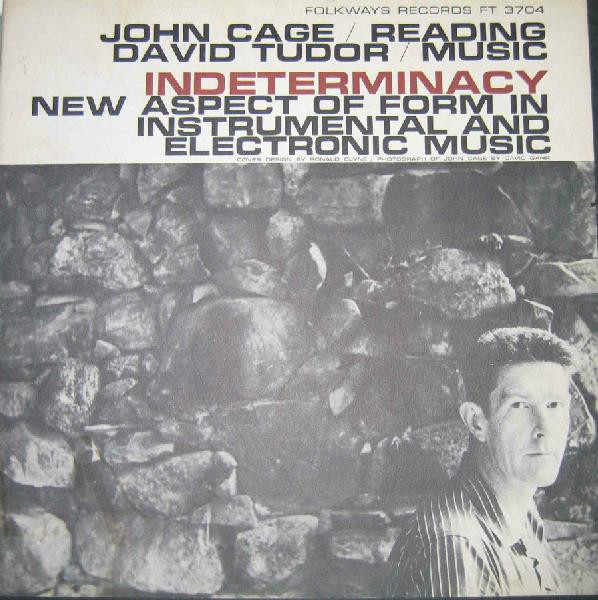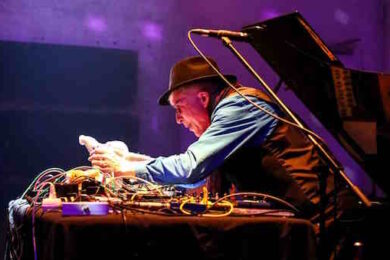3. John CageIndeterminacy: New Aspect Of Form In Instrumental And Electronic Music

John Cage was an eye-opener. He seemed to be a philosopher more than a composer and I liked his music. One time when I was living at home as a teen I had Indeterminacy on the record player – the piece where John tells one story a minute, and so if the story is short there are lots of silences and if it’s long it’s very quick. David Tudor playing piano, but not barroom piano, he was playing prepared sounds and electronic modifications. I was playing the record, and my mother came in and said, "But Rhys, that man sounds like he’s a homosexual!" I was so disgusted – "Oh mom!" What a bizarre reaction. What does a homosexual sound like? I’ve always thought that John has a very distinctive voice and I love it. I’ve always thought about that remark and my mother’s strange perceptions on things.
That was a very formative piece, also. I’d read Silence in 1964 after it came out, A Year From Monday, very influential books. Not specifically on what I do now or back then; you wouldn’t hear much correspondence between the sounds I was making and what Cage was making. His influence for many people is more in that he opened minds to different ways of viewing the world.


